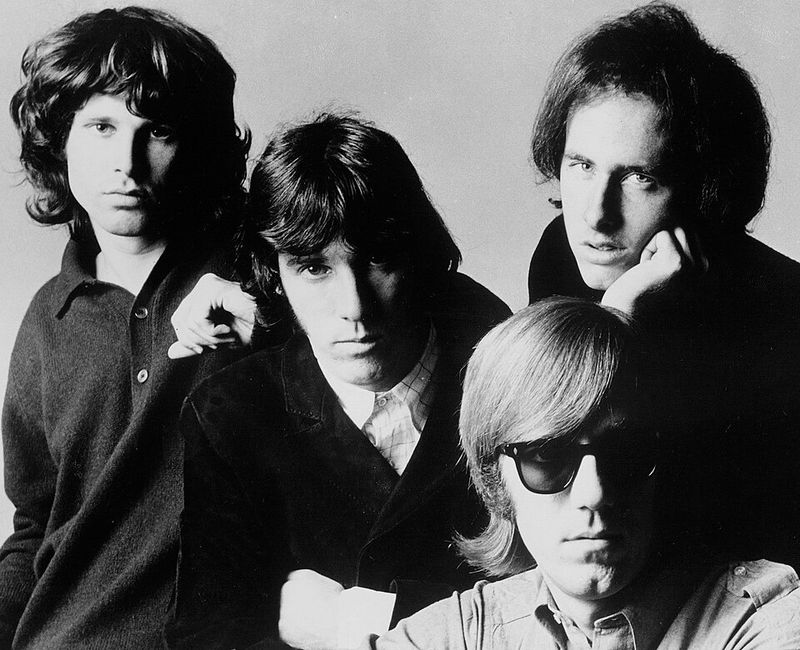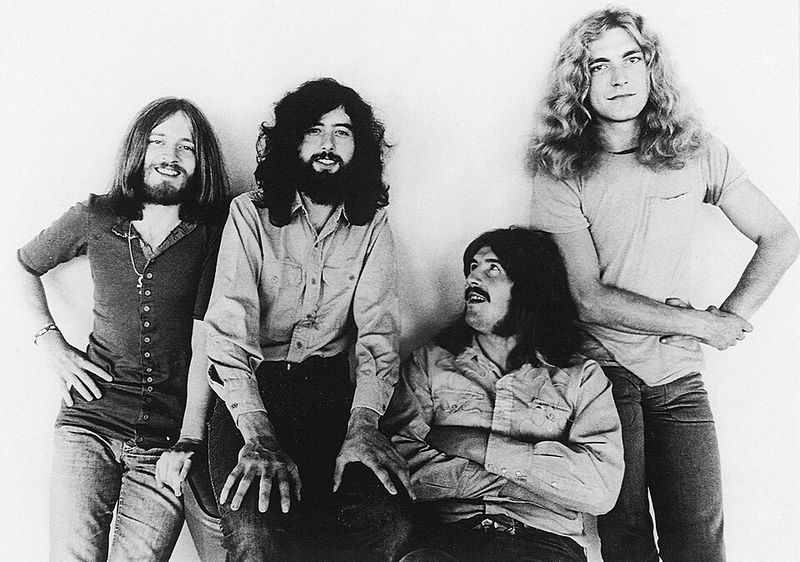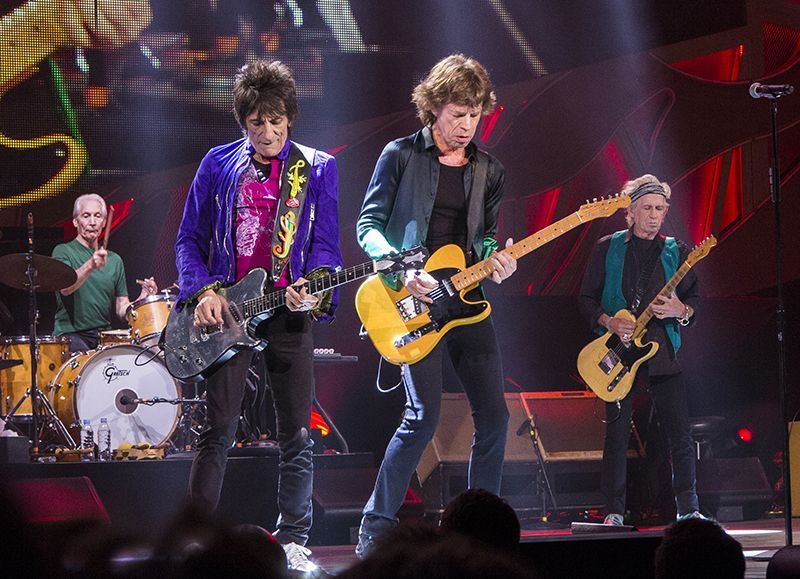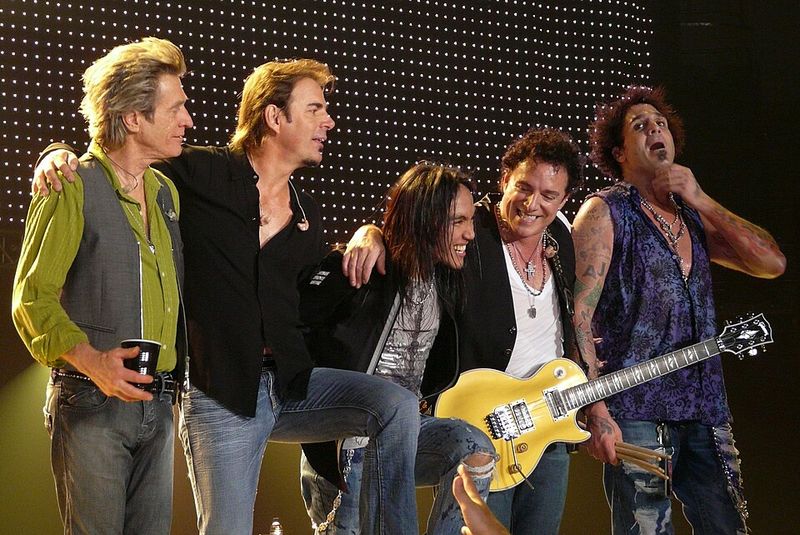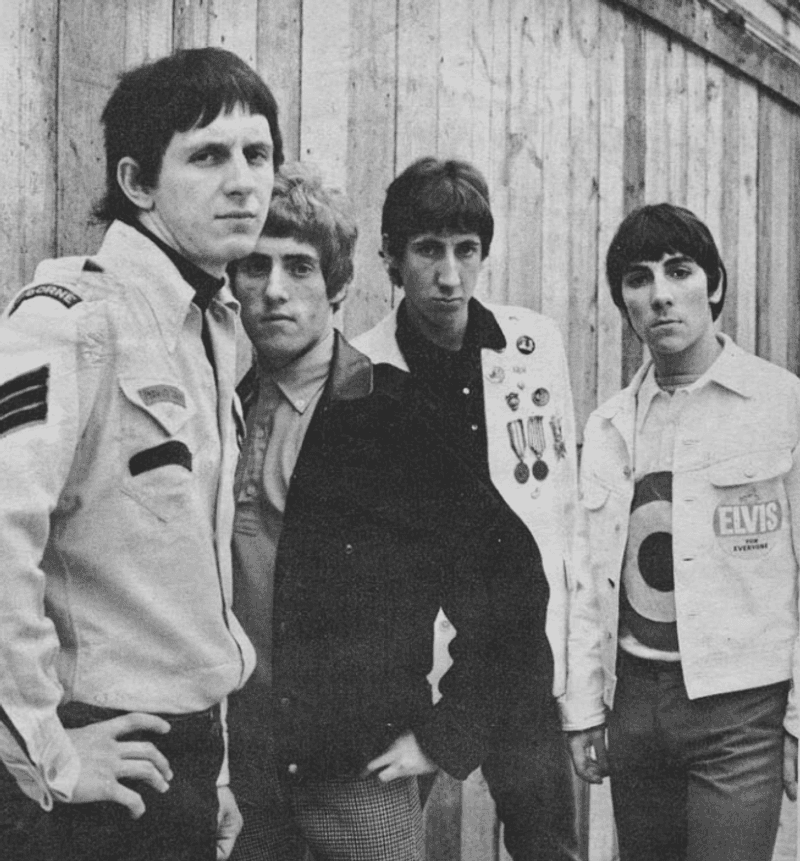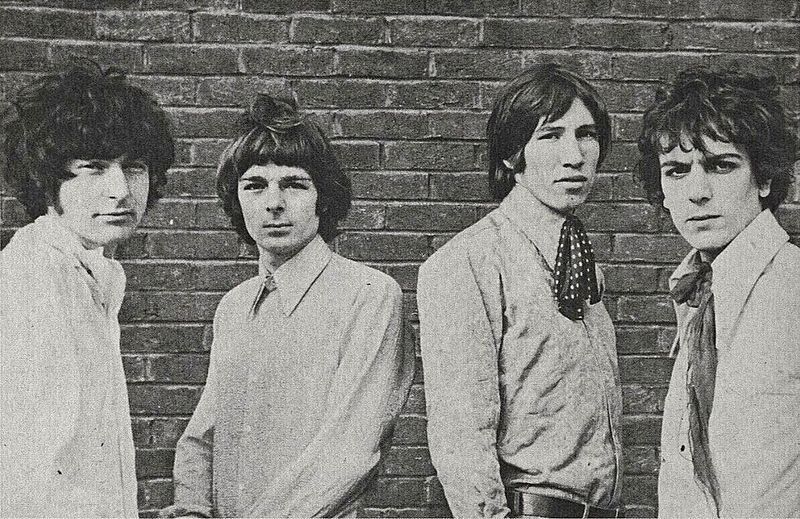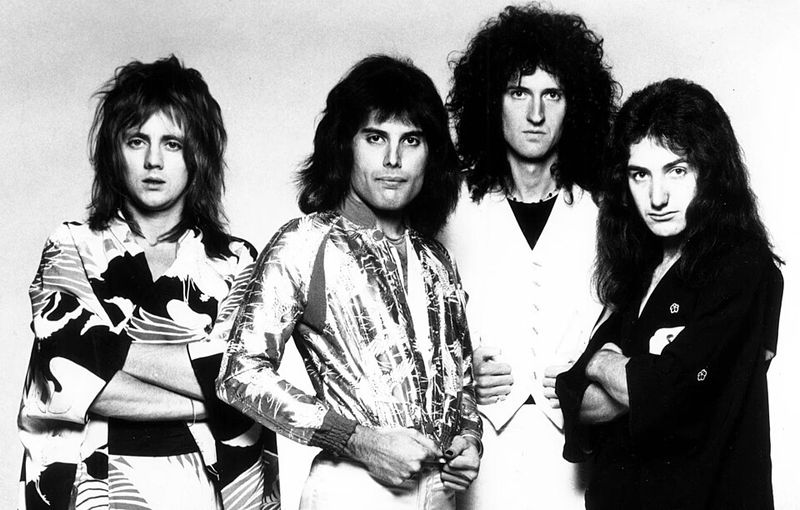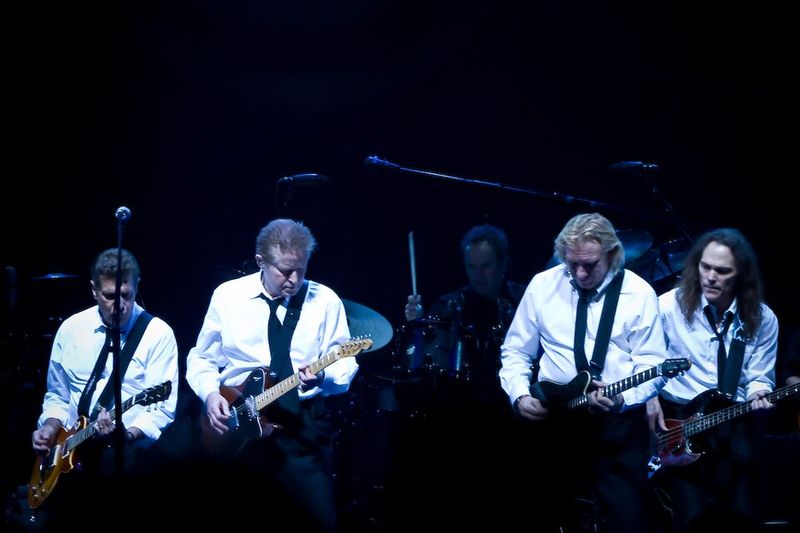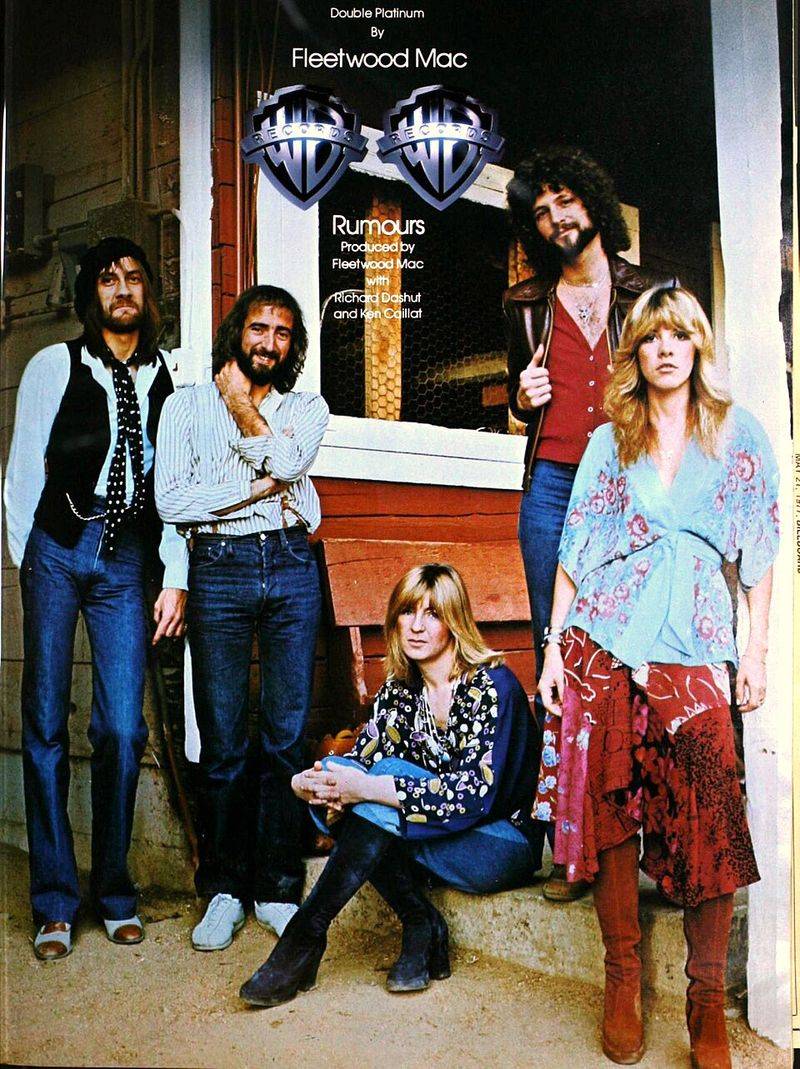Classic rock has given us some of the most legendary bands in music history. But sometimes the hype around certain groups grows bigger than the music itself. Whether it’s borrowed riffs, one-hit wonders, or albums that don’t live up to the legend, these 21 bands might just be getting more credit than they deserve.
1. The Doors
Often hailed for mystique rather than a consistently strong catalogue, The Doors built their reputation on Jim Morrison’s charisma and poetic lyrics. Critics argue the myth outweighs the actual music quality. While songs like “Light My Fire” became anthems, much of their work feels repetitive or overly dramatic.
Many fans worship the band for Morrison’s rebellious image more than musical innovation. The reality is that their albums have uneven tracks that don’t match the legendary status. Their fame seems tied more to Morrison’s tragic early death than groundbreaking artistry.
2. Led Zeppelin
Frequently called the greatest rock band ever, Led Zeppelin faces criticism for heavy borrowing of blues content without proper credit. Many classic Zeppelin tracks closely mirror earlier blues songs. Their later albums also showed inconsistency compared to their groundbreaking early work.
Jimmy Page’s guitar wizardry is undeniable, but questions about originality linger. The band’s mystique grew as much from their lifestyle as their music. While they influenced countless artists, some argue their legendary status overlooks the borrowed foundations of their sound and uneven catalog quality over time.
3. The Rolling Stones
Iconic without question, The Rolling Stones built a reputation on rebellious energy and blues-infused rock. However, some critics say their output beyond a core few albums is over-celebrated. Albums like “Exile on Main St.” get endless praise, but much of their later work feels formulaic.
The band became more of a nostalgia act than innovators after the 1970s. Their live shows are legendary, but the music doesn’t always match the spectacle. Many fans love the image and attitude more than consistently great songs throughout their massive catalog.
4. Aerosmith
Massive commercial success defined Aerosmith, especially during their 1980s comeback. But critics argue their innovation waned as they leaned too hard on radio-friendly hits. Songs like “Dream On” showcased real talent, but later work often felt manufactured for MTV audiences.
Steven Tyler’s voice and stage presence carried the band more than groundbreaking musicianship. Their blues-rock formula became predictable over time. While they sold millions of records, many question whether commercial success equals true classic rock greatness or just smart marketing and catchy hooks that dominated the airwaves.
5. AC/DC
Fantastic riff-masters without doubt, AC/DC built a career on high-voltage rock anthems. Critics argue they’re essentially a one-sound band with little growth or depth across decades. Every album follows the same blueprint of thundering drums, power chords, and raspy vocals.
While consistency has its merits, some say it borders on repetition rather than evolution. Angus Young’s guitar work is iconic, but the formula rarely changes. Fans love the reliability, but detractors question whether doing the same thing for 40 years deserves the massive legendary status they’ve achieved in rock history.
6. Dire Straits
Enormous commercial success came to Dire Straits with “Brothers in Arms” and “Money for Nothing.” But outside a few memorable songs, critics argue the rest of their catalogue lacks urgency or edge. Mark Knopfler’s guitar style is distinctive but can feel monotonous across full albums.
The band’s laid-back approach works for individual tracks but doesn’t sustain excitement. Many songs blend together without memorable hooks or energy. While technically proficient, Dire Straits often feels more like background music than essential rock. Their reputation seems inflated by a handful of hits rather than consistent album quality.
7. Journey
Known for big arena hooks and power ballads, Journey dominated radio in the late 1970s and 1980s. Critics question whether catchy choruses and Steve Perry’s soaring vocals equate to “classic rock greatness.” Songs like “Don’t Stop Believin'” became cultural touchstones, but depth is lacking.
The band excelled at crafting singalong anthems for stadiums. However, their music often feels formulaic and overly polished. Many argue Journey represents the commercialization of rock rather than artistic innovation. Their massive popularity stems more from nostalgia and karaoke appeal than groundbreaking musicianship or meaningful lyrical content.
8. Whitesnake
Like many glam and big-rock bands of the 1980s, Whitesnake became well-known for their image and MTV presence. Often seen as style over substance, their music featured slick production and hair-metal aesthetics. David Coverdale’s vocals carried songs that often lacked depth.
“Here I Go Again” became a massive hit, but the rest of their catalog doesn’t hold up as well. The band’s sound was polished for radio play rather than artistic expression. Critics argue Whitesnake represents the excess of 1980s rock without the musical foundation to support their legendary reputation in classic rock history.
9. The Who
A seminal band that helped define rock opera and power chords, The Who’s influence is undeniable. However, some argue their legendary status elevates weaker later work unduly. Albums after “Who’s Next” showed declining creativity and energy compared to their explosive early years.
Pete Townshend’s windmill guitar moves became iconic, but spectacle sometimes overshadowed substance. Their best work is genuinely groundbreaking, but inconsistency mars their catalog. The band’s reputation benefits from a few masterpieces while mediocre albums get overlooked. Many feel nostalgia inflates their standing beyond what the complete body of work deserves.
10. Pink Floyd
Monumental in creating atmospheric, concept-driven rock, Pink Floyd’s reputation sometimes overshadows reality. Many of their works are indulgent or conceptually bloated, requiring patience that tests casual listeners. “Dark Side of the Moon” deserves praise, but other albums meander without clear direction.
The band excelled at creating soundscapes but often sacrificed songs for ambiance. Long instrumental passages can feel pretentious rather than profound. While their innovation in studio production is notable, critics question whether experimentation alone justifies their towering status. Some argue Pink Floyd is more appreciated for atmosphere than actual memorable songwriting.
11. U2
Often grouped with classic rock despite their later era dominance, U2 achieved huge acclaim and commercial success. However, they face frequent accusations of self-importance and inconsistency. Bono’s activism sometimes overshadows the music itself, and their sound became increasingly polished and less raw.
Early albums like “The Joshua Tree” showed genuine artistry and passion. Later work often felt overproduced and preachy. The band’s massive ego and stadium-sized ambitions can feel disconnected from rock roots. Many argue U2’s reputation exceeds their actual musical contributions, with style and message trumping substance and innovation over time.
12. Creedence Clearwater Revival
Great hits like “Fortunate Son” and “Bad Moon Rising” made CCR radio staples and cultural touchstones. For some listeners, though, the catalogue is thinner than their legend suggests. The band’s prime lasted only a few years before internal conflicts ended their run.
John Fogerty’s voice and songwriting carried the group, but albums can feel repetitive. Their swamp-rock formula worked brilliantly for singles but doesn’t always sustain full albums. While their best songs are undeniably classic, the overall body of work is smaller and less varied than other bands with similar legendary status in rock history.
13. Boston
Huge debut album with massive production values made Boston an instant sensation in 1976. Songs like “More Than a Feeling” showcased layered guitars and soaring vocals. But critics say there’s not enough beyond the formula to merit legendary status.
Tom Scholz’s perfectionism resulted in few albums over decades. The sound that made them famous became a limitation rather than evolution. Every release followed the same blueprint without growth or experimentation. While their debut is genuinely impressive, Boston’s legacy rests too heavily on one album. Many question whether that’s enough to deserve their place among rock’s elite.
14. Foreigner
Arena-rock staples with massive singles like “I Want to Know What Love Is” and “Cold as Ice,” Foreigner dominated radio. Critics argue depth and artistic evolution are lacking in their catalog. The band excelled at crafting radio-friendly hits but rarely took creative risks.
Lou Gramm’s powerful vocals carried polished, commercial rock songs. However, albums often feel like collections of singles without cohesive vision. Foreigner represents the corporate side of rock, designed for maximum airplay. While undeniably successful, many question whether commercial appeal equals true artistic merit or classic rock greatness beyond catchy hooks and sing-along choruses.
15. Kiss
Iconic stage show and marketing genius made Kiss one of rock’s most recognizable brands. Many critics say musically they’re more spectacle than substance. The elaborate costumes, pyrotechnics, and personas overshadowed often simplistic songs.
Gene Simmons and Paul Stanley built an empire on merchandising and image. Their music, while catchy, rarely showed depth or innovation. Kiss succeeded as entertainment rather than musical artistry. Albums are filled with straightforward rock without the complexity other legends achieved. Their reputation stems more from branding brilliance than groundbreaking music, making them perhaps the most overrated band when separating showmanship from actual songwriting quality.
16. Van Halen
Incredible technical talent, especially Eddie Van Halen’s revolutionary guitar work, defined their early years. However, some feel later output didn’t live up to the hype. The band’s sound changed dramatically with different lead singers, creating inconsistency.
Eddie’s finger-tapping technique influenced countless guitarists and changed rock forever. But beyond flashy solos, songwriting sometimes lacked depth. Internal conflicts and lineup changes hurt their legacy. While their debut and early albums are genuinely innovative, later work felt formulaic. Van Halen’s reputation may rest too heavily on Eddie’s technical prowess rather than consistently great albums throughout their career.
17. Def Leppard
Hugely successful with heavily produced albums like “Hysteria” and “Pyromania,” Def Leppard dominated MTV and radio. Critics sometimes question the artistry versus commercialism in their polished sound. Producer Mutt Lange crafted their albums with meticulous precision, but songs can feel manufactured.
The band’s perseverance through drummer Rick Allen’s accident is genuinely inspiring. However, their music prioritized commercial appeal over innovation or edge. Layers of production created radio-perfect hits but stripped away raw energy. While technically proficient, Def Leppard represents the corporate rock machine at its peak, leading many to question their place among true classic rock legends.
18. Guns N’ Roses
Enormous impact with “Appetite for Destruction” made Guns N’ Roses instant rock legends in 1987. Their long-term legacy is debated, especially given uneven follow-through. Internal conflicts and Axl Rose’s unpredictability prevented consistent output.
Slash’s guitar work and the band’s raw energy captured lightning in a bottle. But subsequent albums showed declining quality and focus. The bloated “Use Your Illusion” double album had moments but lacked the debut’s punch. Decades of lineup changes and sporadic releases hurt their standing. Many argue Guns N’ Roses is overrated because one phenomenal album shouldn’t equal legendary status without sustained excellence.
19. Queen
Loved by millions worldwide, Queen created theatrical, operatic rock that defied conventions. Some argue their reputation stems as much from theatrical and pop crossover success as “classic rock greatness.” Freddie Mercury’s voice and stage presence were undeniably incredible.
The band experimented across genres, from rock to disco to opera. However, this versatility sometimes lacked focus or rock credibility. Songs like “Bohemian Rhapsody” are masterpieces, but albums contain filler and odd experiments. Queen’s legend grew enormously after Mercury’s death, with nostalgia amplifying their status. Critics question whether emotional connection and spectacle have inflated their ranking beyond what the complete catalog deserves.
20. The Eagles
Exemplary songwriting and hits like “Hotel California” made The Eagles one of the best-selling bands ever. Critics point to a gap between their best songs and the bulk of their catalogue. Their country-rock blend worked brilliantly on singles but can feel bland across full albums.
Meticulous harmonies and production created radio-perfect tracks. However, perfectionism sometimes resulted in sterile, overly polished music lacking edge. Internal tensions and limited output also raise questions. While their greatest hits collection is genuinely impressive, deeper album cuts don’t always match the quality. Many feel The Eagles’ reputation exceeds their actual innovation in rock music.
21. Fleetwood Mac
Hugely influential and beloved, Fleetwood Mac’s “Rumours” became one of history’s best-selling albums. Some of their acclaim is tied to myth, nostalgia, and personal drama rather than consistent musical excellence. Not all albums sustain the legend that “Rumours” created.
The Buckingham-Nicks era brought pop sensibility to their blues-rock roots. Internal romantic turmoil fueled great songs but also created inconsistency. Later albums lacked the magic of their peak years. While their best work is undeniably classic, the overall catalog has peaks and valleys. Many argue Fleetwood Mac’s legendary status rests too heavily on one phenomenal album and personal drama.

